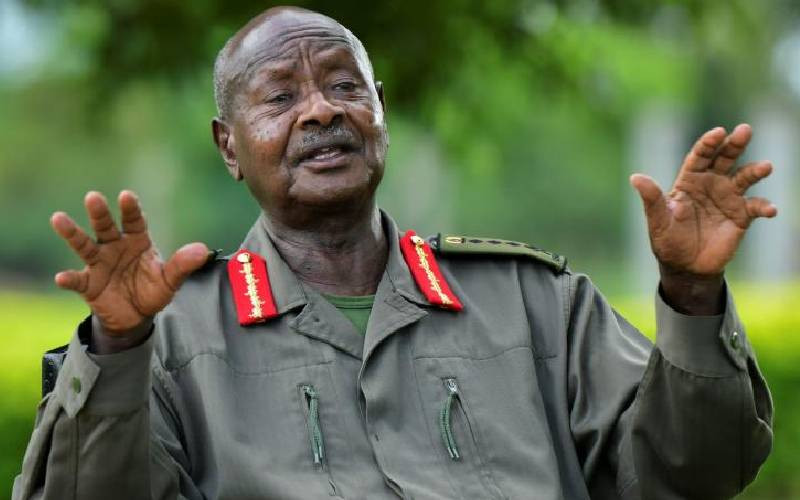×
The Standard e-Paper
Kenya’s Boldest Voice

President Yoweri Kaguta Museveni - Africa's fourth-longest-serving head of state in 2023 - has cemented his place in history.
He brought an end to two tyrannies: in 1979 his militia helped to oust Idi Amin's famously bloody regime; and in the 1980s his army won a guerrilla campaign against the brutal government of Milton Obote. When his men marched into Kampala in 1986, Museveni became the first leader of a popular insurrection to oust a sitting African government.